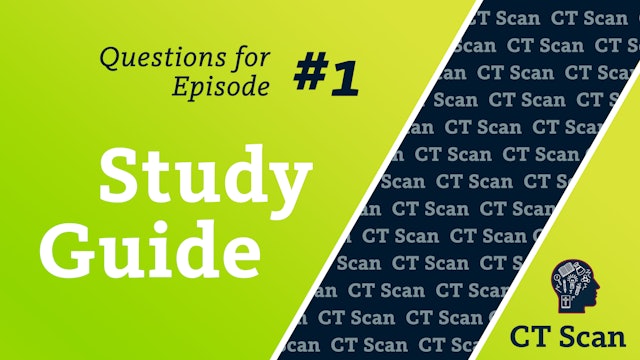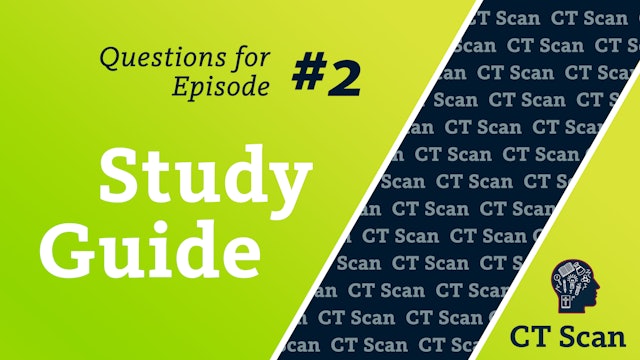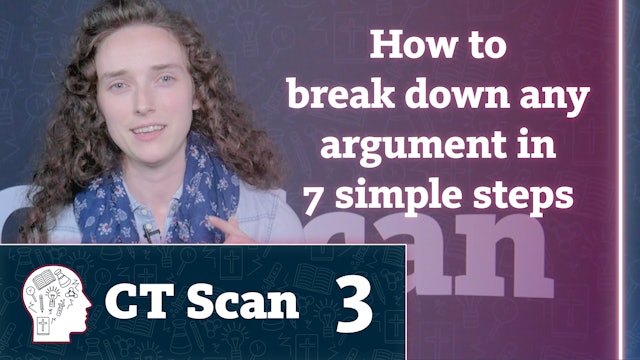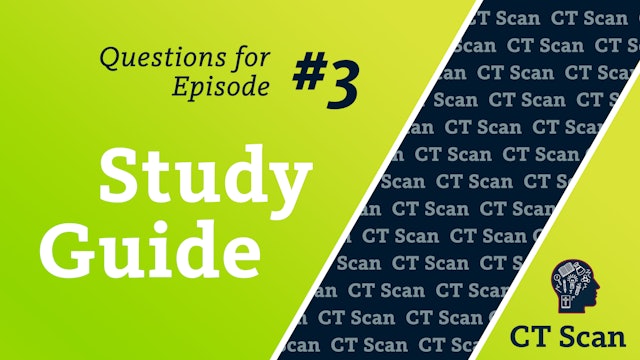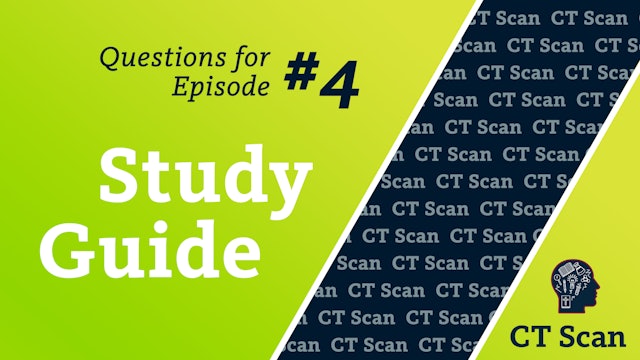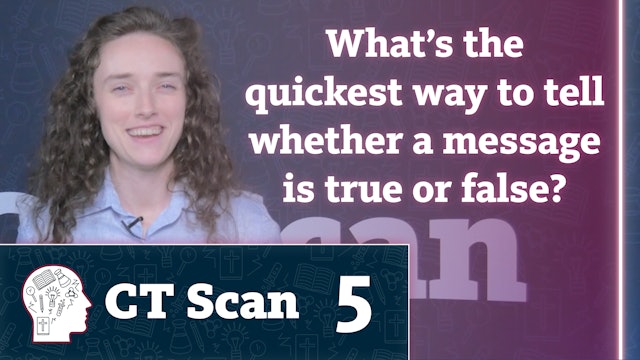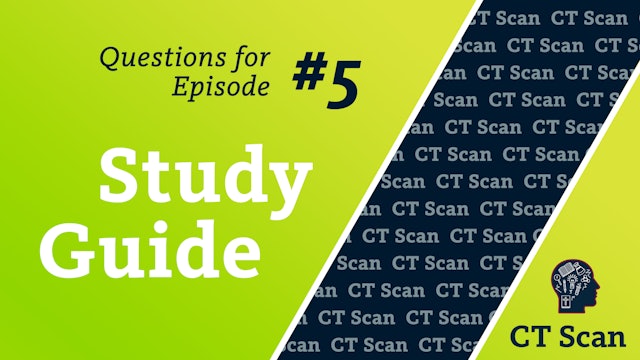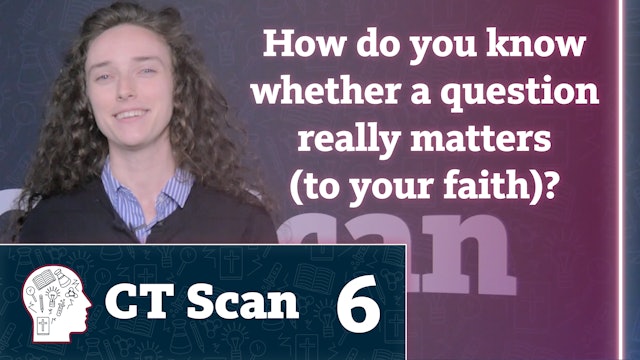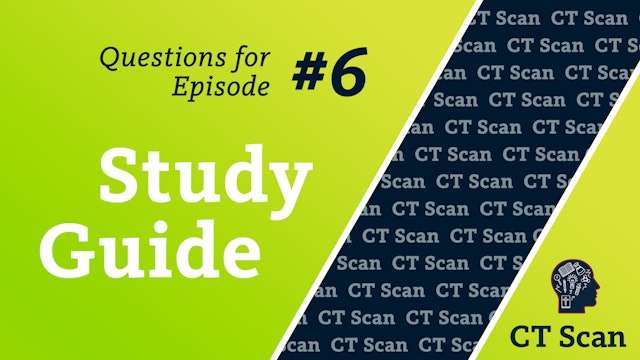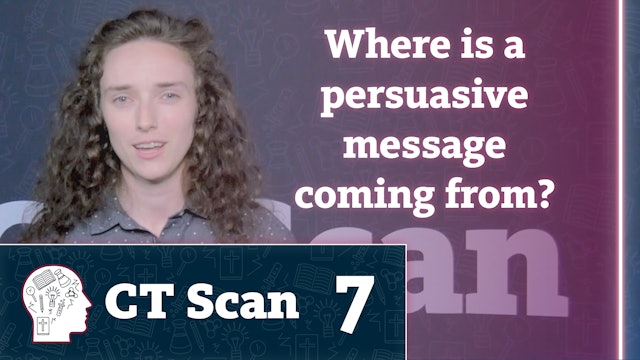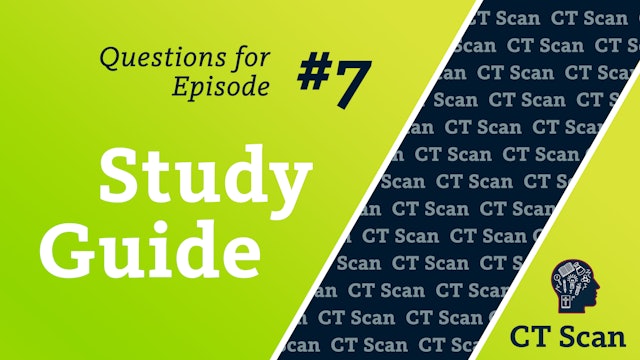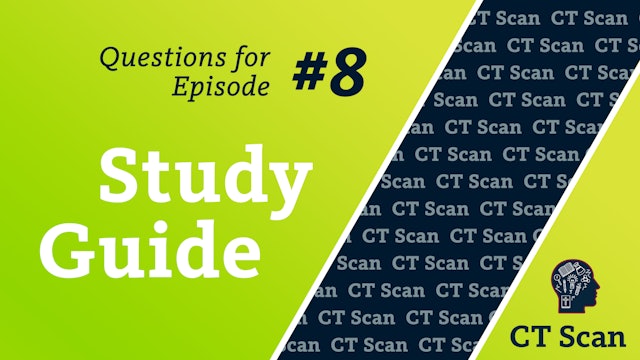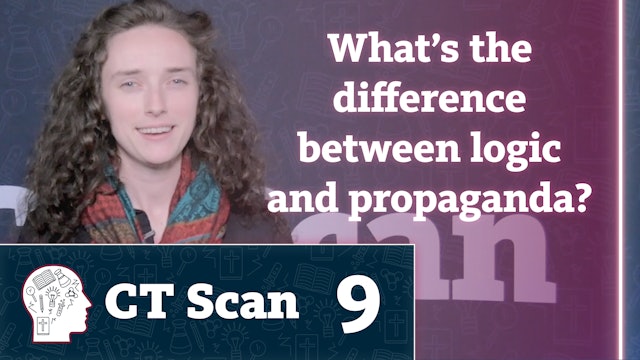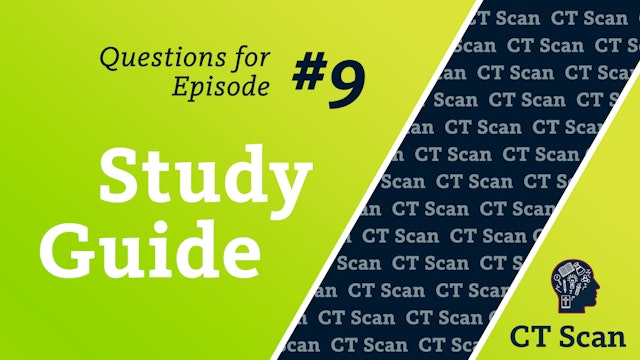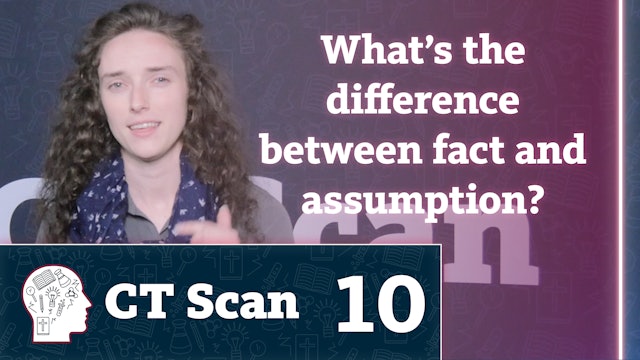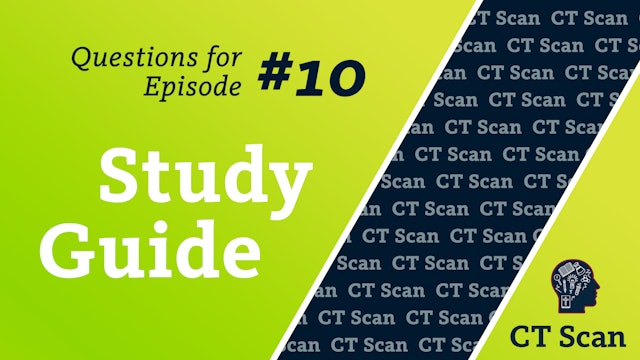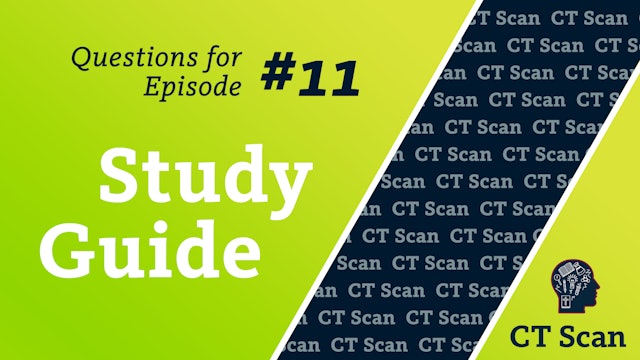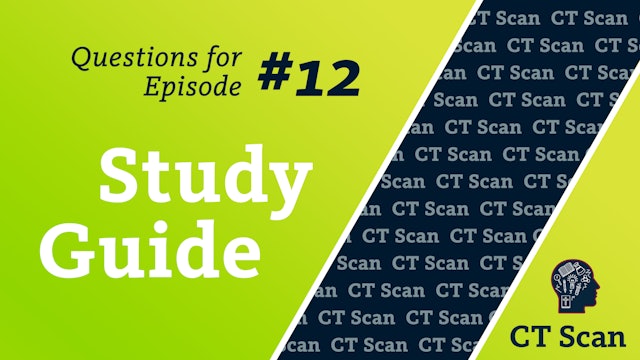-
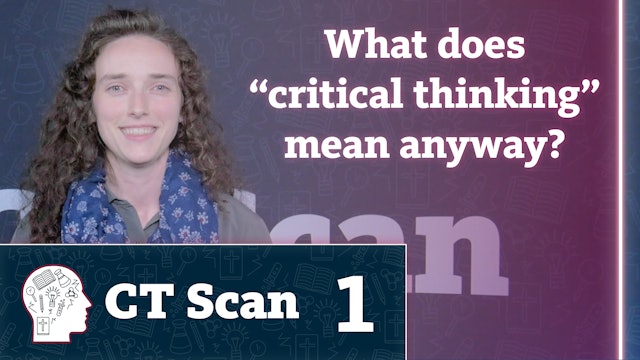 05:06Episode 1
05:06Episode 1What is Critical Thinking?
Episode 1
Whether online, in classrooms, or on the media, we're bombarded by persuasive messages that contradict Scripture. No matter how many responses we memorize, we're always bound to have new questions, because there will always be new information. Critical thinking can help you process any faith-chal...
-
Handout 1 - What is Critical Thinking?
167 KB
-
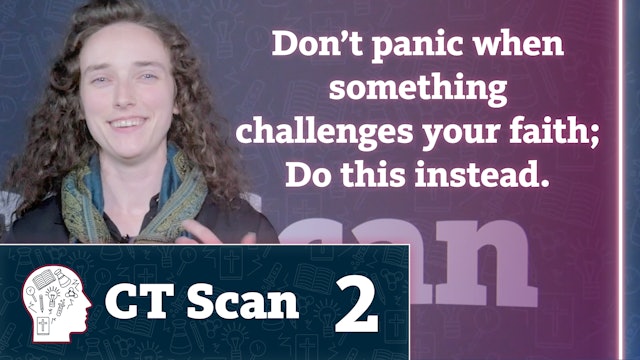 04:34Episode 2
04:34Episode 2Critical Thinking Rule #1: Don't Panic
Episode 2
When you first encounter an argument against the Bible you've never heard before, it can be easy to panic, doubt or question your beliefs. But that's the time to take a deep breath and remind yourself what you know: God's word is true, so anything contradictory is false. Here are practical tips t...
-
Handout 2 - Critical Thinking Rule #1: Don’t Panic
182 KB
-
Critical Thinking Rule #2: Break it Down (The 7 Checks of Critical Thinking)
Episode 3
With a framework called the 7 Checks of Critical Thinking, you can break down almost any message that challenges your faith and reach a biblical, logical conclusion yourself. Developed through real-world experience in evolutionary university classes, this critical thinking tool is relevant for an...
-
Handout 3 - Critical Thinking Rule #2: Break it Down (The 7 Checks of CT)
177 KB
-
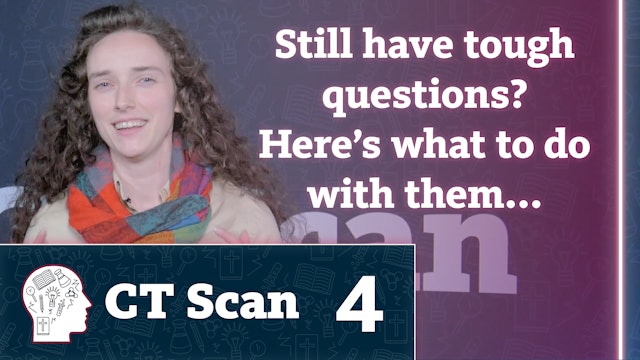 04:52Episode 4
04:52Episode 4Critical Thinking Rule #3: Follow Up
Episode 4
Sometimes, even after applying all the critical thinking steps you know, you may still have some unresolved questions left over. The trouble doesn't start when we begin asking questions; it starts when we stop seeking answers. By seeking answers from three types of trusted sources, you may find t...
-
Handout 4 - Critical Thinking Rule #3: Follow Up
177 KB
-
Critical Thinking Check #1: Check Scripture
Episode 5
You can always detect a lie by comparing it to the truth. Scripture is the ultimate authority for truth, because God is the only one who's always been around, knows everything, and cannot lie. So, the quickest way to test the truth of any messagesincluding the messages we tell ourselvesis to comp...
-
Handout 5 - Critical Thinking Check #1: Check Scripture
186 KB
-
Critical Thinking Check #2: Check the Challenge
Episode 6
Sometimes as you compare a message against Scripture, you realize the message doesn't challenge your faith so much as your ideas about your faith. How can you tell whether a message opposes a debatable side issue or a non-negotiable doctrine of God's word? Here are three questions you can ask to ...
-
Handout 6 - Critical Thinking Check #2: Check the Challenge
176 KB
-
Critical Thinking Check #3: Check the Source
Episode 7
When you hear a faith-challenging message, it's key to keep in mind where the information is coming from. How credible is the information source? What are the source's likely worldview assumptions or possible motives? How was the information collected? And is the data being accurately reported?
-
Handout 7 - Critical Thinking Check #3: Check the Source
185 KB
-
Critical Thinking Check #4: Check the Definitions
Episode 8
Sometimes, words that sound the same carry multiple meanings. So, it's vital to clarify the definitions being used for key any key terms in a message, and to make sure those terms don't subtly switch meanings. Some words, like science and evolution, are especially susceptible to switching meaning...
-
Handout 8 - Critical Thinking Check #4: Check the Definitions
181 KB
-
Critical Thinking Check #5: Check for Propaganda
Episode 9
Propaganda is anything that tries to persuade by appealing to something besides logic, like emotions, aesthetics, or humans' desire for acceptance. By taking advantage of mental shortcuts we use in our everyday thinking, propaganda uses psychological manipulation to make messages seem truer than ...
-
Handout 9 - Critical Thinking Check #5: Check for Propaganda
176 KB
-
Critical Thinking Check #6: Check the Interpretations
Episode 10
often, unbiblical messages may sound true because they contain real facts. But they also likely involve many assumptions, which are presented like facts. To separate data from assumption, as which parts of a message are facts from observational science, and which parts are interpretations from hi...
-
Handout 10 - Critical Thinking Check #6: Check the Interpretations
180 KB
-
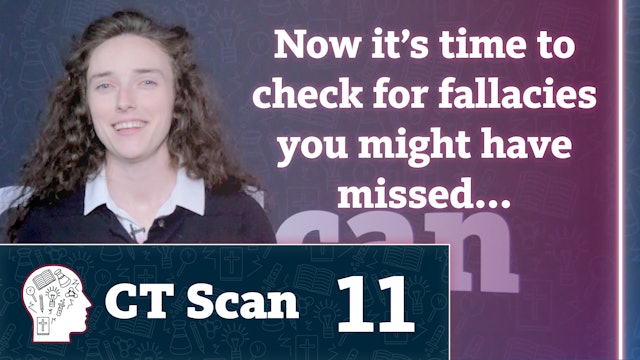 04:52Episode 11
04:52Episode 11Critical Thinking Check #7: Check the Logic
Episode 11
By now in the critical thinking process, you will have already caught many potential fallacies in a message, including Appeals to Authority, Equivocation and Either-or Fallacies. But other faulty arguments, such as Circular Reasoning, Appeals to Probability, or Faulty Generalizations, may still l...
-
Handout 11 - Critical Thinking Check #7: Check the Logic
173 KB
-
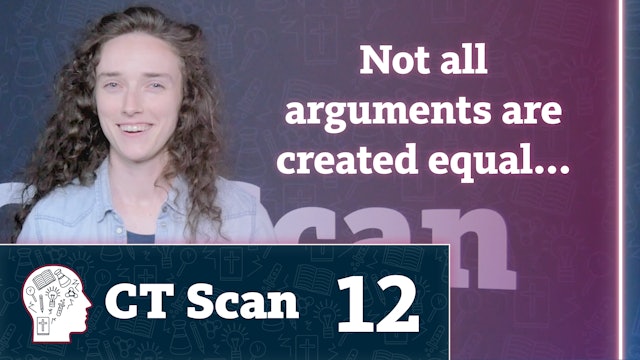 04:55Episode 12
04:55Episode 12What IS an Argument, Anyway?
Episode 12
Not all arguments are equally logical. In logic, an argument is a set premises which work together to support a conclusion. Deductive arguments try to prove a conclusion is true, while inductive arguments try to imply a conclusion is probable. Being able to recognize a sound deductive argument wi...
-
Handout 12 - What IS an Argument, Anyway?
376 KB



